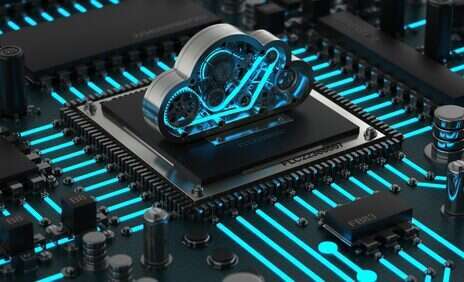In a manoeuvre worthy of Chinese disinformationists, IBM is attempting to minimise the problems resulting from a rash of head crashes on its flagship 3380K disk drives. The cause of these crashes has now been isolated and eliminated, according to IBM and some independent sources. But users may still face potential disaster unless IBM pre-emptively replaces the head-disk assemblies in their 7.5Gb disks. Reports from across the US confirm the spate of catastrophic disk failures. A major New York stockbrokerage says that IBM replaced all the head-disk assemblies in a vast disk farm of suspect 3380Ks; a Southern retailer reckons that nearly a third of their 3380Ks have had to undergo surgery; a huge auto-maker says that IBM technicians performed substantial maintenance work on its disks; a Midwestern bank says that 15% of the HDAs on its most expensive disks have been replaced. IBM says that the source of fault has been isolated and was corrected in the company’s plants, while thus far declining to characterise accurately the amount of work the manufacturer has had to perform in the field on disks shipped before IBM knew it was shipping lemons. Spokesperson Elizabeth Ward asserts that the problem was solved early last fall in manufacturing. Customers whose disks pre-date this change in manufacturing appear to be the only ones at risk. But when asked to specify precisely the date after which IBM is confident its largest disk files no longer would experience the reported sudden failures, Ms Ward stated, we will not be more specific. Nor has the company yet said whether the fault is present in all 3380s built before the fourth quarter of 1988 or confined to ones assembled during a specific period. One third party lessor concerned with its ability to remarket the potentially faulty disks has begun an investigation of drives in its rental portfolio. I have not located any problem disks shipped from San Jose after last September, says an executive at the firm, but I haven’t found the oldest disk that’s safe, either. I’m hoping that IBM’s problem doesn’t stretch back to the first machines shipped. IBM began installed 3380Ks during the fourth quarter of 1987. In the US, IBM 3380s (both 2.5Gb model Js and 7.5GB models Ks) are numbered sequentially beginning with R0001 for the A versions that start a string and with U0001 for the less expensive B versions that are attached to A disks. Legal documents filed in conjunction with disk financings indicate that some of the highest serial numbers of 3380Ks installed in the US last autumn run to approximately R7800 and through all the U numbers to V4000. If, as widely believed, IBM numbers each disk consecutively, there are 7,800 potentially flawed A-version and 14,000 B-version 3380s in use. Users have apparently been told by IBM technicians that the failures stem from a problem with the disks’ bearings. But whatever the direct cause, the consequence is a failure that results in a complete loss of all the data stored on the disks rather than a partial or temporary unavailability of files. Industry sources suggest that the cost of a head-disk assembly when it leaves IBM’s plant is $5,000 to $8,000. There are two HDAs in each 3380 unit. So the total cost to IBM for replacing the pair of spindles in a 3380 drive could easily be $15,000. If IBM had to replace the HDAs on all 20,000 3380s it shipped before last September, the total bill could in theory reach $300m. Even IBM, with annual profits in the $6,000m range, could not easily bury such a large unanticipated cost. Nor would the manufacturer embark on an HDA replacement campaign so extensive unless it absolutely had to. But if IBM’s faulty disks were confined to production during just a few months, the cost would be much smaller – and more easily hidden in its vast budget. Some of the failures reportedly occurred within several weeks after disks were installed. As a result, IBM may well have become aware of a potential problem within a month or two after it first cropped up. This has led industry sources to speculate that IBM’s act
ual cost was limited to $50m, the cost of repairing 3,000 to 4,000 drives. Even if the problem restricted to a fraction of the base, the large capacity of a 3380K brings the aggregate volume of data at risk to more then 25 trillion characters. IBM’s reported response to 3380 crashes seems to vary from site to site. Some disk owners say that IBM replaced the HDAs on their drives only after failures occurred. Others say that IBM swept through sites, getting user personnel to transfer data off suspect drives, replacing HDAs and then reloading the units. These sources add that IBM offered to bring in spare 3380s at its own expense to make the repairs less disruptive to customers’ operations. IBM’s disk problems may prove a boon to makers of competing products.
Fear, uncertainty and doubt
With a new generation of disks in the wings, fear, uncertainty and doubt will play to favour plug compatible vendors. IBM-compatible disks sold by Amdahl and National Advanced Systems are not known to be as potentially dangerous as IBM’s mid-1988 vintage 3380s. Some large shops may remember the risks (if not actual data losses) they faced due to IBM’s manufacturing mishaps. Consequently, firms that must stay on line could delay their commitment to new and unproven storage devices coming out of San Jose, taking alternative products instead. In addition, IBM’s most recent flirtation with disaster may force the company to test its new products even more exhaustively than it had the 3380Ks, delaying volume shipments and further deferring IBM’s long-awaited business upturn at the high end of its product line. – Hesh Wiener (C) 1989 TNA Co.





